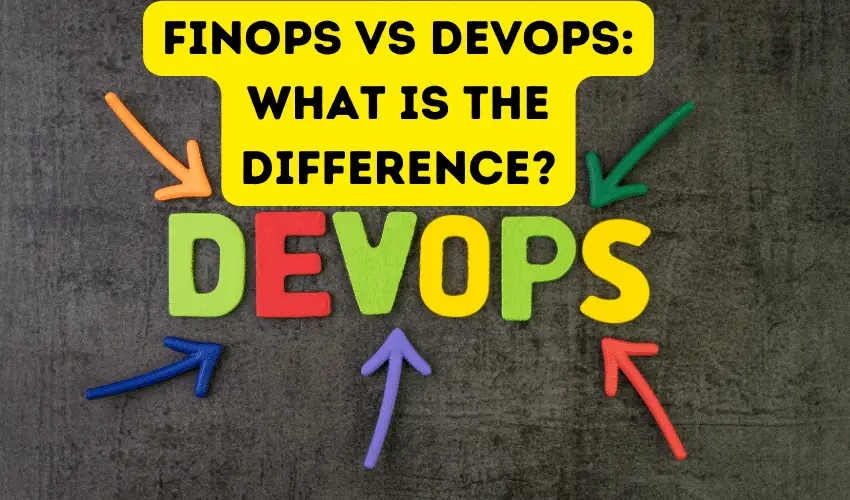Present-day organizations center around further developing productivity. This impacts the practices, cycles, and devices expected to solidify and share assets, smooth out activities, and use measurements to gauge the association’s exhibition. The objective is to separate the conventional storehouses that sit around idly and cash. The push to further develop business productivity takes many structures, each cultivating another discipline that vows to change the business.
Also check: LinuxTechLab DevOps Page
Cloud FinOps: “Optimizing Cloud Financial Operations for Cost Proficiency”
The ensuing substance will zero in on the practices and procedures related with Cloud FinOps, explicitly pointed toward streamlining and overseeing cloud costs for worked-on cost proficiency.
In the business vernacular, activities regularly allude to the different divisions, staff, and endeavors associated with maintaining the business, including finance, bookkeeping, deals, and administration. Two significant models incorporate DevOps and FinOps. It’s not difficult to become befuddled by the implications and contrasts among these different terms, so how about we inspect these two terms and think about the difference between FinOps and DevOps?
- What is FinOps and for what reason is it significant?
FinOps, a blend of money and tasks, was developed to tend to the quality and proficiency of business speculations and consumptions. As opposed to just reducing expenses, FinOps endeavors to make cross-departmental coordinated efforts among business, money, innovation, and design groups. It then, at that point, looks to right-measure a cloud financial plan to accomplish an ideal equilibrium of execution, quality, and cost for business responsibilities and administrations.
- Principle and Approach:
While the rationale and approach of FinOps can apply to practically any business issue, the chief utilization of FinOps has been around the business worth of distributed computing use.FinOps is driven by the FinOps Establishment and depends on an iterative series of moves toward accomplish these objectives: inform, optimize, operate
- Inform: It assembles data for FinOps colleagues. This could incorporate expense investigation, execution measurements, and connections to business responsibilities and working units.
- Optimizing: Optimizing is about right-measuring costs. This may be pretty much as basic as switching off unnecessary cloud assets or administrations. It could likewise include reengineering to convey a superior performing and more practical foundation for a responsibility.
- Operate: Operate is the arrangement of cycles and best practices used to run jobs in the cloud, set metric benchmarks, layout cloud financial plans, figure future cloud costs, etc.
- What are cloud FinOps?
what is cloud finops, otherwise called Cloud Financial Operations, is a bunch of practices and procedures pointed toward streamlining and dealing with the expenses of distributed computing administrations. It includes adjusting monetary and functional objectives to accomplish cost productivity, cost straightforwardness, and cost responsibility inside a cloud climate.
Eventually, FinOps is a method for tending to cloud intricacy. A public cloud includes innumerable interrelated administrations and assets all creating billable costs that can be challenging to comprehend and follow. At the point when a business permits any engineer, division head or partner to send and work a responsibility, the business can rapidly encounter out of the blue significant expenses and dangerous execution.
- What is DevOps and for what reason is it significant?
DevOps, a mixture of improvement and tasks, is a bunch of standards, best practices, and instruments planned to speed up programming advancement. It additionally expects to convey programming to clients at higher speeds and with preferable quality over conventional programming improvement standards. A commonplace DevOps cycle includes a progression of steps, like coding, building, testing, and sending. Extra advances are frequently embedded to assist with overseeing building and testing through robotization, rendition controls, examination, and announcing.
- Difference between FinOps and DevOps:
By all accounts, DevOps and FinOps appear to be unmistakably changed. All things considered, DevOps alludes to programming improvement and IT tasks engaged with delivering and handling a product item, while FinOps centers around the expense and execution proficiency of cloud use across the business handling a product item successfully in the cloud.
However, the two ideas are more indistinguishable than they are unique. The two ideas share the accompanying business-accommodating characteristics:
- diminished chance to showcase
- cost control and the board
- quality and execution improvement
- diminished issues or streamlined investigating
- iterative methodology all through the lifecycle
- exceptionally cooperative
The two ideas address conveying programming for the business. With DevOps, the product is grown inside and generally conveyed to the neighborhood information center. With FinOps, the product expected to run in the cloud is now calculated in, whether grew inside or was bought financially. FinOps (Monetary Activities) and DevOps (Advancement Tasks) are two particular trains that address various parts of business tasks. While there might be some covering regions, their essential centers vary fundamentally.
Conclusion:
In the end, while difference both FinOps vs DevOps assume pivotal parts in present-day business tasks, they have unmistakable targets and areas of concentration. FinOps is fundamentally worried about overseeing and enhancing cloud costs, while DevOps centers around further developing programming advancement.
We are giving you exclusive deals to try Linux Servers for free with 100$ credit, check these links to claim your 100$,
DigitalOcean - 100$ free credit & Linode - 100$ free credit
Check some Exclusive Deals, HERE.
Also, check out DevOps Book You should read section.
